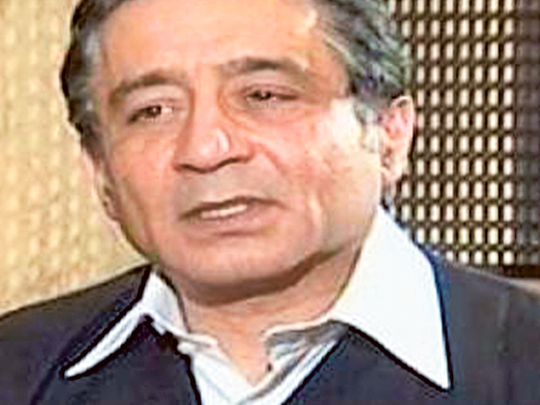
Cairo: Recent reports that Ahmad Ezz, a leading politician in the now-dissolved party of former president Hosni Mubarak, will stand for Egypt’s new parliament has sparked concerns that old regime figures plan a comeback to politics.
Ezz, a steel baron, is regarded as having engineered massive vote rigging in the 2010 parliamentary elections swept by the then ruling National Democratic Party (NDP), months before a popular uprising forced Mubarak to step down.
Although Ezz did not deny or confirm the reports of his candidacy, other former NDP stalwarts have disclosed intentions to contest the parliamentary elections, due early next year. Their perceived comeback has prompted calls for a ban on former NDP members.
“There is a need for a law to prevent all those who have corrupted political life, particularly NDP leaders, from returning to politics,” said political commentator Jamal Nafae. “The argument that Egyptian people will isolate the NDP members at the ballot box is a lost bet. The major factors in Egyptian parliamentary elections have always been money and family links. They are still there. So, I think the NDP is set to make a big return to the new parliament,” Nafae wrote in the semi-official newspaper Al Ahram this week.
Bids over the past four years to bar Mubarak regime officials from contesting polls have been dismissed by law courts as unconstitutional. The NDP, founded in late 1970s by late president Anwar Al sadat, dominated Egypt’s politics for more than three decades.
Raising the stakes for Mubarak’s loyalists in the coming parliamentary vote are rifts inside old political parties and weakness of youth –based groupings created since Mubarak’s ouster, according to experts.
Amr Hashem, a political analyst, sees several “favourable factors” for former NDP members and followers of the now-outlawed Muslim Brotherhood to enter the new legislature.
“One factor is weakness of the existing political parties, which have repeatedly failed to agree on a united alliance for competing in the coming elections,” Hashem said.
“These parties are not close to people and are not democratic inside their ranks. They also suffer from a shortage of money and flawed organizational structures,” he added. “In contrast, the former NDP members and the Brotherhood have enough financial resources and a wide experience in elections.”
The Brotherhood won nearly half of the parliamentary seats in Egypt’s first post-Mubarak vote in 2012. The army deposed president Mohammad Mursi, who belongs to the Brotherhood in mid-2013, and the government listed the group as a terrorist organizations months later.
Around 420 seats of the new 567-strong parliament, officially called the House of Representatives, will be up for grabs through individual candidacy, a quota expected to be used by Mubarak loyalists and Islamists to enter the parliament.
Some 120 more seats are allocated for party-based contenders while the remaining 27 are to be appointed by the head of state.
Egypt’s new constitution adopted in early 2014 curtails the president’s powers in favour of the parliament.
“No doubt, the new parliament will not express the January revolution,” said Osama Al Sharif, a human rights activist, referring to the anti-Mubarak uprising.
“A large segment of young people are disappointed at the distortion campaign launched by the Mubarak regime figures and their media against this revolution,” Sherif said. “Moreover, the symbols of this revolution are already in prisons. Even those who are still outside are too frustrated to participate in the elections as candidates or even as voters. Thus, the arena is left for Mubarak’s people to be the main player in the next parliament.”
In the wake of Mursi’s toppling, Egyptian authorities launched a massive-scale crackdown against Islamists. Several secular pro-democracy campaigners have also been arrested and jailed for holding illegal protests.












